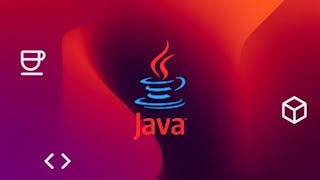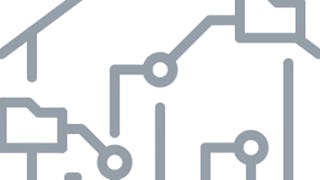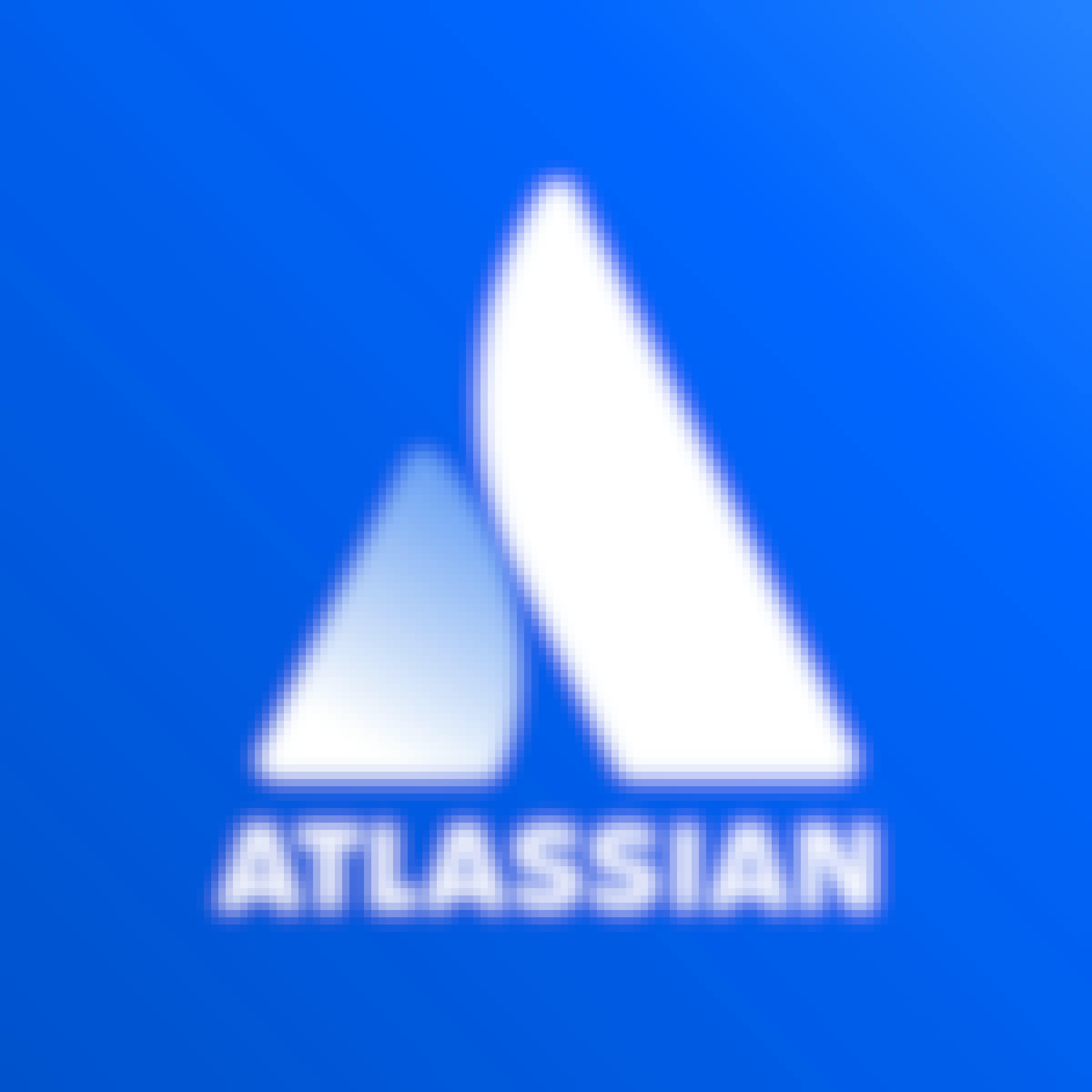- Browse
- Cognitive Science
Cognitive Science Courses
Cognitive Science courses can help you learn about human perception, language processing, decision-making, and neural networks. You can build skills in critical thinking, data analysis, and experimental design, which are vital for understanding how the mind works. Many courses introduce tools like Python for data analysis, statistical software for research, and simulation programs to model cognitive processes, allowing you to apply your knowledge in practical settings.
Popular Cognitive Science Courses and Certifications
 Status: NewNew
Status: NewNewSkills you'll gain: Spatial Data Analysis, GIS Software, Geospatial Information and Technology, Spatial Analysis, Geographic Information Systems, Geospatial Mapping, User Interface (UI), Application Development, Python Programming, Application Design, Data Science, Application Deployment, User Interface (UI) Design
Beginner · Course · 1 - 3 Months
 Status: Free TrialFree TrialU
Status: Free TrialFree TrialUUniversity of California San Diego
Skills you'll gain: Unit Testing, Event-Driven Programming, Object Oriented Programming (OOP), Data Structures, Graph Theory, Social Network Analysis, Debugging, Technical Communication, Network Analysis, Interactive Data Visualization, Java Programming, Java, Algorithms, Software Design, Computational Thinking, Program Development, Software Engineering, Software Visualization, Engineering Software, Problem Solving
4.7·Rating, 4.7 out of 5 stars7.2K reviewsIntermediate · Specialization · 3 - 6 Months
 Status: Free TrialFree Trial
Status: Free TrialFree TrialSkills you'll gain: UI/UX Research, Usability Testing, Presentations, User Experience Design, User Research, Mobile Development, Data Ethics, User Centered Design, Prototyping, Research Methodologies, Wireframing, Interviewing Skills, Information Privacy
4.8·Rating, 4.8 out of 5 stars6K reviewsBeginner · Course · 1 - 4 Weeks
 Status: Free TrialFree Trial
Status: Free TrialFree TrialSkills you'll gain: Data Visualization, Regression Analysis, Advanced Analytics, Statistical Analysis, Data Analysis, Statistical Methods, Data Science, Machine Learning Methods, Artificial Intelligence, Python Programming, Machine Learning, Project Documentation, Portfolio Management
4.8·Rating, 4.8 out of 5 stars1.4K reviewsAdvanced · Course · 1 - 4 Weeks
 Status: Free TrialFree TrialU
Status: Free TrialFree TrialUUniversity of Toronto
Skills you'll gain: Computer Vision, Convolutional Neural Networks, Image Analysis, Control Systems, Robotics, Embedded Software, Automation, Deep Learning, Software Architecture, Simulations, Safety Assurance, Traffic Flow Optimization, Artificial Neural Networks, Global Positioning Systems, Machine Controls, Hardware Architecture, Systems Architecture, Network Routing, Estimation, Machine Learning Methods
4.7·Rating, 4.7 out of 5 stars3.5K reviewsAdvanced · Specialization · 3 - 6 Months
 Status: Free TrialFree Trial
Status: Free TrialFree TrialSkills you'll gain: Incident Response, Computer Security Incident Management, Incident Management, Cybersecurity, Cyber Threat Intelligence, Security Management, Cyber Security Policies, Security Awareness, Data Ethics, Data Security, Personally Identifiable Information, AI Security, Technical Communication, Artificial Intelligence
4.8·Rating, 4.8 out of 5 stars6.2K reviewsBeginner · Course · 1 - 3 Months
 Status: Free TrialFree Trial
Status: Free TrialFree TrialSkills you'll gain: Software Development Life Cycle, Software Architecture, Software Design, Scrum (Software Development), Software Engineering, Software Design Patterns, Agile Methodology, Software Development, Unified Modeling Language, Programming Principles, Application Development, Web Development, Front-End Web Development, Integrated Development Environments, Python Programming
4.7·Rating, 4.7 out of 5 stars4.5K reviewsBeginner · Course · 1 - 3 Months
 Status: PreviewPreviewA
Status: PreviewPreviewAAtlassian
Skills you'll gain: Jira (Software), Agile Methodology, Scrum (Software Development), Kanban Principles, Agile Project Management, Lean Methodologies, Backlogs, Sprint Planning, Sprint Retrospectives, User Story, Workflow Management, Project Management, Product Requirements, Query Languages, Software Versioning, Continuous Improvement Process
4.7·Rating, 4.7 out of 5 stars9.7K reviewsBeginner · Course · 1 - 4 Weeks
 C
CCoursera
Skills you'll gain: WordPress, Content Management Systems, Web Content, Web Design and Development, Web Design, Web Development, Social Media, Content Management, Marketing, Design, Computer Science
4.4·Rating, 4.4 out of 5 stars4.3K reviewsAdvanced · Guided Project · Less Than 2 Hours
 Status: Free TrialFree TrialU
Status: Free TrialFree TrialUUniversity of Michigan
Skills you'll gain: Data Processing, Data Cleansing, Data Visualization, Data Analysis, Data Modeling, Python Programming, Data Visualization Software, Exploratory Data Analysis, Web Scraping, Algorithms
4.7·Rating, 4.7 out of 5 stars14K reviewsBeginner · Course · 1 - 3 Months
 Status: Free TrialFree TrialM
Status: Free TrialFree TrialMMicrosoft
Skills you'll gain: Web Scraping, Data Structures, Git (Version Control System), Generative AI, Version Control, Matplotlib, Devops Tools, Plotly, DevOps, Agile Methodology, Web Development, Data Ethics, Flask (Web Framework), Data Visualization, Scripting, GitHub, Debugging, Data Analysis, Automation, Cloud Computing
4.4·Rating, 4.4 out of 5 stars602 reviewsBeginner · Professional Certificate · 3 - 6 Months
 Status: NewNewStatus: Free TrialFree TrialK
Status: NewNewStatus: Free TrialFree TrialKKnowledge Accelerators
Skills you'll gain: Power BI, Data Presentation, Microsoft Excel, Dashboard, Excel Formulas, Data Modeling, Data Entry, Data Analysis, Data Storytelling, Analytics, Business Modeling, Data Processing, Data-Driven Decision-Making, Business Analysis, Data Cleansing, Data Science, Data Synthesis, Microsoft 365, Trend Analysis, Data Management
4.5·Rating, 4.5 out of 5 stars1.7K reviewsBeginner · Specialization · 3 - 6 Months
Searches related to cognitive science
In summary, here are 10 of our most popular cognitive science courses
- Python Geospatial Development Essentials: Packt
- Object Oriented Java Programming: Data Structures and Beyond: University of California San Diego
- Conduct UX Research and Test Early Concepts: Google
- Google Advanced Data Analytics Capstone: Google
- Self-Driving Cars: University of Toronto
- Put It to Work: Prepare for Cybersecurity Jobs: Google
- Introduction to Software Engineering: IBM
- Agile with Atlassian Jira: Atlassian
- Build a Full Website using WordPress: Coursera
- Capstone: Retrieving, Processing, and Visualizing Data with Python: University of Michigan










